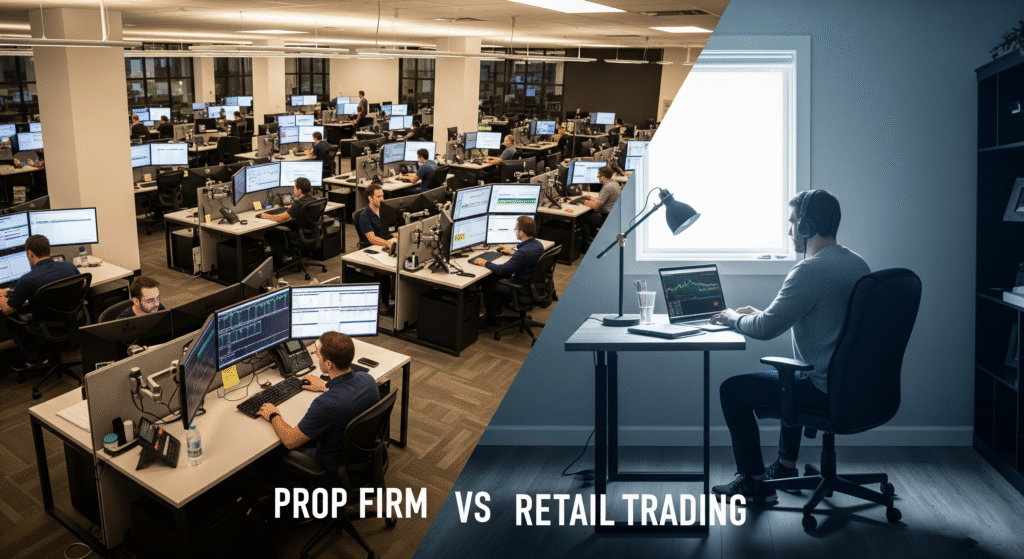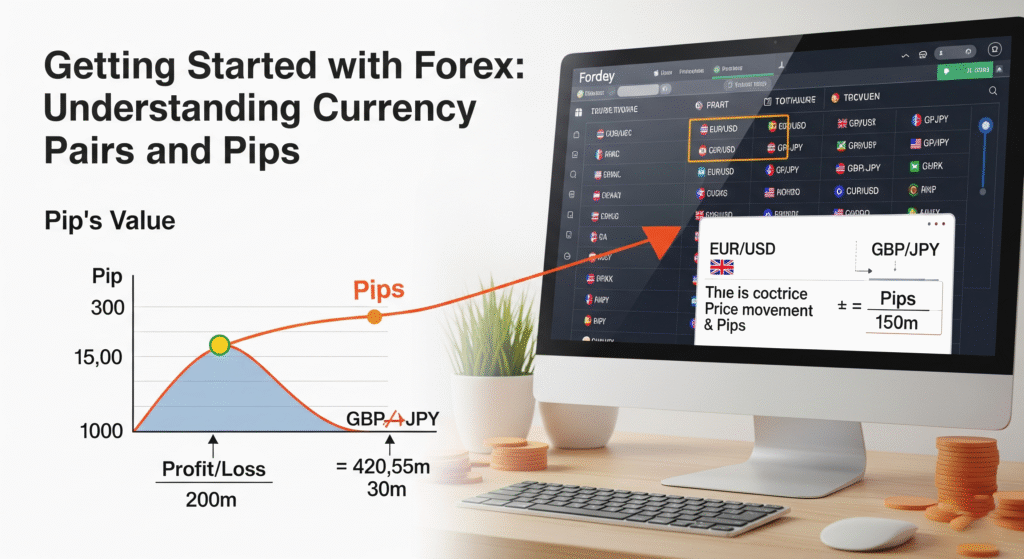He is a Full-time trader and Trading Mentor @ Findependence Trading Academy, with over 18 years of hands-on experience in the stock and forex markets. His journey from being a working professional to achieving financial independence through trading has inspired hundreds of aspiring traders to take control of their financial future.
His trading style revolves around identifying high-probability swing setups in equities and executing precise intraday trades in the forex markets. He treats trading like a business, where rules, clarity, and risk limits aren’t optional—they’re essential. He’s trained over 100+ traders through personalized coaching and structured programs, focusing not just on strategy but on building the mindset and systems that lead to long-term success.
A strong believer in keeping trading simple and practical, He shares real-world lessons drawn from market wins, losses, and years of evolving with changing conditions. He is also the author of “Getting Started with Technical Analysis” and a creator of custom TradingView indicators designed to give traders an edge.
When he’s not charting or mentoring, you’ll find him enjoying a game of Table Tennis.
Table of Contents
Prop Firm vs. Retail Trading: A Head-to-Head Comparison
The world of trading is evolving—and if you’re new to the game, you’re probably already caught between two tempting choices:
1. Should I trade my own money as a retail trader?
or
2. Should I go for a prop firm and get funded?
Let me stop you right here and say this: Both can work. Both can fail.
And having spent 18 years in the markets—starting as a retail trader, moving into futures, and now actively mentoring prop firm traders—I’ve experienced both sides of the coin.
Each path brings its own set of freedoms, fears, and frustrations.
This post isn’t about selling you a dream.
It’s about helping you understand the practical, emotional, and financial realities of each route—so you can make the right decision for yourself.
If you’re still weighing your options and want structured guidance, start with solid, experience-backed share trading classes that break down both worlds—retail and prop—before you commit to either.
Let’s unpack this—real talk, trader to trader.
Quick Summary: Prop Firm vs. Retail Trading
| Feature | Prop Firm Trading | Retail Trading |
| Capital Provided | Up to $100K–$400K (firm capital) | Your own funds |
| Risk of Loss | Firm bears risk (to an extent) | You bear full risk |
| Profit Split | Typically 70%–90% to trader | 100% of profits (and losses) |
| Rules & Limitations | Strict rules, drawdown limits | No external rules |
| Scaling Potential | Possible with consistent performance | Slower unless heavily funded |
| Psychological Pressure | Fear of violating rules or losing funding | Fear of losing own money |
| Learning Curve | Steep, rule-based | Self-paced, flexible |
| Payout Structure | Bi-weekly/monthly (via Deel, crypto, etc.) | Direct to bank or broker account |
What Is Retail Trading?
Retail trading means using your own capital, trading via a broker of your choice, with complete freedom—and full responsibility.
You call the shots: position sizing, risk, when to trade, how much to risk, and when to stop.
It’s like running your own business—with no boss, no rules, and no safety net.
Pros of Retail Trading
- 100% Profit Ownership
Every rupee or dollar you make is yours. - No External Restrictions
Trade whenever, however, with no daily drawdown limits. - Full Control of Strategy
No restrictions on holding trades over weekends or during news. - True Market Exposure
You’re in the real market, not a simulated one. - Freedom to Experiment
Try different styles—scalping, swing, algo—without worrying about firm rules.
Cons of Retail Trading
- You Risk Your Own Money
Every mistake is financially painful—and emotionally draining. - Limited Capital
Many traders start underfunded, which can skew risk-taking. - Slower Scaling
Growing a ₹50K account to ₹5L takes time (and luck). - No Accountability
Without rules, it’s easy to go off-track or overtrade. - Lonely Journey
Unless you have a mentor or community, you’re figuring it all out yourself.
Personal Note:
In my first five years as a retail trader, I saw it all—wins, losses, doubts, overtrading, burnout. I didn’t know then what I know now: trading is less about prediction, more about discipline. And in retail, the discipline has to come entirely from within.

What Is Prop Firm Trading?
Prop trading, or proprietary firm trading, involves trading with someone else’s capital—usually after passing a challenge or evaluation.
You don’t need to risk your own funds. The prop firm sets rules. You follow them. If you make money, you share the profits (usually 70–90% to you).
It’s structured. It’s pressure-filled. It can be life-changing—if done right.
Pros of Prop Firm Trading
- Access to Large Capital
Start with $50K, $100K, even $400K accounts. - No Personal Financial Risk
Blow an account? You lose access—not your savings. - Faster Path to Income
A solid 5% return on $100K gives you $5K in a month. - Structured Rules Encourage Discipline
Drawdown limits force you to stick to risk management. - Low Barrier to Entry
You can get started with as little as ₹10,000–₹25,000 for a challenge fee. - Community and Support
Many firms offer Discord groups, support channels, and mentorship.
Cons of Prop Firm Trading
- Strict Trading Rules
Violate one rule, and you’re out—no excuses. - Not Truly “Live” in Most Cases
Many funded accounts are on demo; real execution may differ. - Profit Split
You don’t keep 100%—it’s a shared game. - No Room for High-Risk Strategies
Martingale, grid systems, news scalping—usually not allowed. - Evaluation Pressure
Passing challenges can be mentally exhausting. Most traders fail at least once.
Real Emotion:
The first time I passed a $100K prop challenge, I felt elated. But staying funded? That’s the real grind. The market tests your strategy, the firm tests your discipline—and you test your own patience.
What Matters More: Capital or Control?
Ask yourself:
- Are you undercapitalized but have a tested strategy? → Prop firm might help.
- Do you want full freedom and own process? → Retail may suit you more.
- Do you trade well under structure and accountability? → Prop firms will reward that.
- Do you learn better when you self-direct and experiment? → Retail is your lab.
Tip from My Own Journey:
I now trade both.
Retail accounts for long-term swing setups.
Prop accounts for high-precision, low-risk intraday setups.
The blend gives me control and scale—without putting my own capital at full risk.
What About Legality in India?
For Indian traders, prop firms exist in a grey zone.
- You’re trading simulated capital on offshore servers.
- RBI regulations prohibit real forex trading outside exchanges—but prop firms are not asking for investments, just performance in a sandbox.
- Payouts are considered foreign income—which you can declare under professional income while filing ITR.
Caution:
Use a proper payment gateway (like Deel or Wise) for receiving payouts.
Always consult a CA for tax implications and legality.
Final Verdict: Which One Wins?
Let’s not play favorites—because both have their place.
| You’re Better Off With… | If You… |
| Retail Trading | Want full control, have capital, like flexibility |
| Prop Firm Trading | Want to scale fast, have risk control, and thrive under rules |
Best of Both Worlds?
Use retail trading to experiment and test strategies.
Use prop firms to scale validated strategies and create income without risking personal capital.
Closing Thoughts: From One Trader to Another
Trading isn’t about being the smartest in the room.
It’s about being consistent, emotionally aware, and strategically clear.
Prop firms have democratized access to capital—
But they’ve also revealed how many traders aren’t truly ready to handle structured discipline.
Retail trading gives you total freedom—
But too much freedom without self-governance often leads to chaos.
At the end of the day, it’s your character as a trader—not the model you choose—that determines your long-term success.
Choose the path that helps you grow, not the one that feeds your ego.
And if you’re serious about building that foundation, explore practical, mindset-first forex trading classes in Kothrud designed to shape not just your skills—but your discipline.



